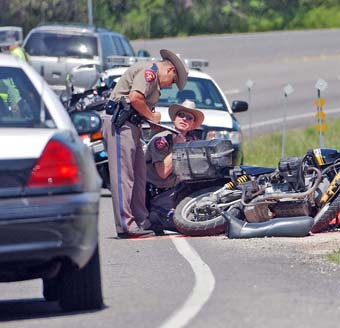(Sponsored lawsuit post for our North American readers)
The most likely scenario in which you would sue after an accident would be if you were injured, and the insurance settlement wasn’t compensating you sufficiently.
Your case will be much better if you followed proper post-accident procedures, such as:
- Keeping an accurate record of the incident.
- Taking pictures of the scene, vehicle damage, and visible injuries.
- Seeking medical attention immediately after the accident and keeping the medical records.
- Tracking all expenses incurred, specifically time you have missed work.
Accident claims have a range of cash values they’ll typically target. A case may be talked about as being worth between $20K and $40K. If the insurance company offers you something within this range, it’s a common thing to take the settlement. It’s when there’s have a grossly higher claim and the insurance settlement makes a far lower offering than even the least you’d get in a suit that people generally go to court.
If you do pursue a lawsuit, the typical personal injury attorney works on a contingency. This means you don’t pay the lawyer unless they win you a settlement. Even though you’re allowed to file a lawsuit without counsel, attorneys are usually risk-free in these types of situations.
General Lawsuit Process
[1] One files a complaint of petition with the court.
This officially makes you the plantiff, and the lawsuit is underway.
[2] Defendant is served.
The defendant gets a copy of the complaint, and a summons to come to court. There are usually rules about who can serve a complaint, when, whether they need witnesses, and so on. The laws may differ depending on location. Your attorney may have a proxy do this, such as a process server or public notary.
[3] The defendant is given a chance to answer.
The defendant can make counter-claims, or even admit to your complaint as a factual allegation. They have a chance to settle out of court.
[4] Discovery
Each side, through their respective legal counsels, exchanges information and facts of the case. Both sides are allowed to examine evidence and prepare their side of the case. There may be individual events here, like swearing out an affidavit under oath, requesting documents, and so on. Discovery goes on as long as it has to. If the other side isn’t cooperating, subpoenas may have to be filed.
[5] Trial
At last, your day in court. Both sides plead their case, lawyers for each side cross-examine the other. Evidence is presented and witnesses are called to testify. The judge then makes their decision. If the finding is “for the plaintiff” in a dollar amount, you have won, and the defendant is required to pay you that amount.
Settlements
Time in court and attorney fees are expensive all around. Most auto accident cases end in a settlement before a case actually sees the inside of a courtroom. In the case of some insurance companies, they may balk at paying you a fair settlement just to “call your bluff,” hoping you’ll want to avoid the trouble of a lawsuit. The second they see a complaint filed, they’ll settle.
Trials in most cases can also be performed with a jury. If so, add much more time to a case, as a whole jury will have to be selected and seated. It is very rare that a full jury trial is brought into a motorcycle accident lawsuit. Then again, juries are sometimes fickle and the outcome might be less certain.
If an insurance company is less confident that a jury will favor them (public sentiment favors the individual over the company), they might settle rather than go through with a jury trial. However, a jury trial doesn’t necessarily favor the plaintiff either, if the jury feels that the plaintiff is making an exaggerated claim to try to get more money.
Remember that either party can offer a settlement, right up until the last bang of the judge’s gavel. Filing a lawsuit does not prevent you from making a settlement offer later.
Caveats:
Do not try to exaggerate a case, your injuries, or your suffering. The defendant’s insurance company can appoint surveillance to find out if you are really as injured as you say you are.
Do not discuss your case with third parties. You never know when an insurance adjuster working for the defendant will call you and try to trick you into admitting you’re not that bad off, etc. There are lots of tricky legal terms which can slip you up here. Report all such encounters to your attorney.
The above applies to social media as well. An insurance adjuster, investigator, or other legal agent may be checking your Facebook, Twitter, or other network looking for some evidence they can pounce on. Obviously, if your claim is for a broken leg but you post to your Facebook about your ski trip, that’s going to impact your case.


